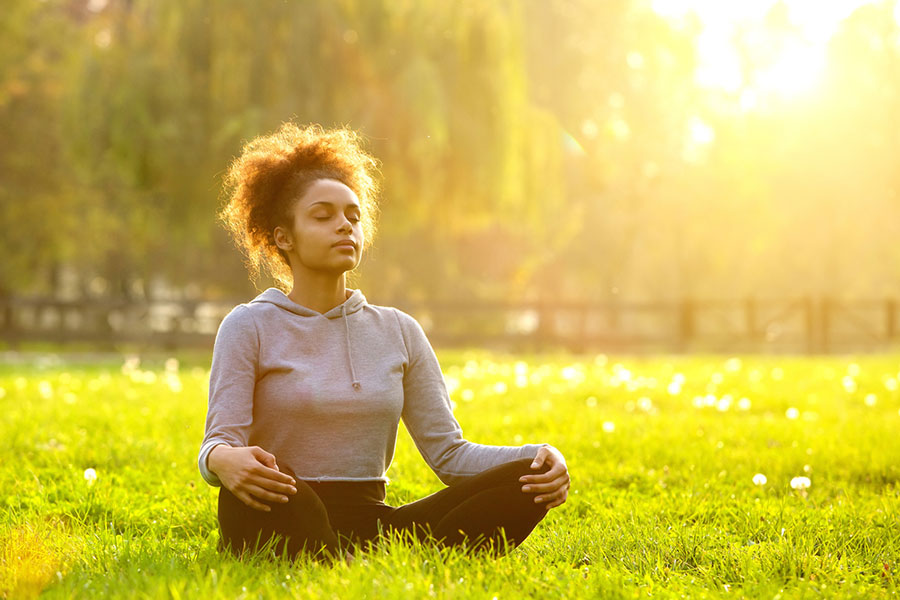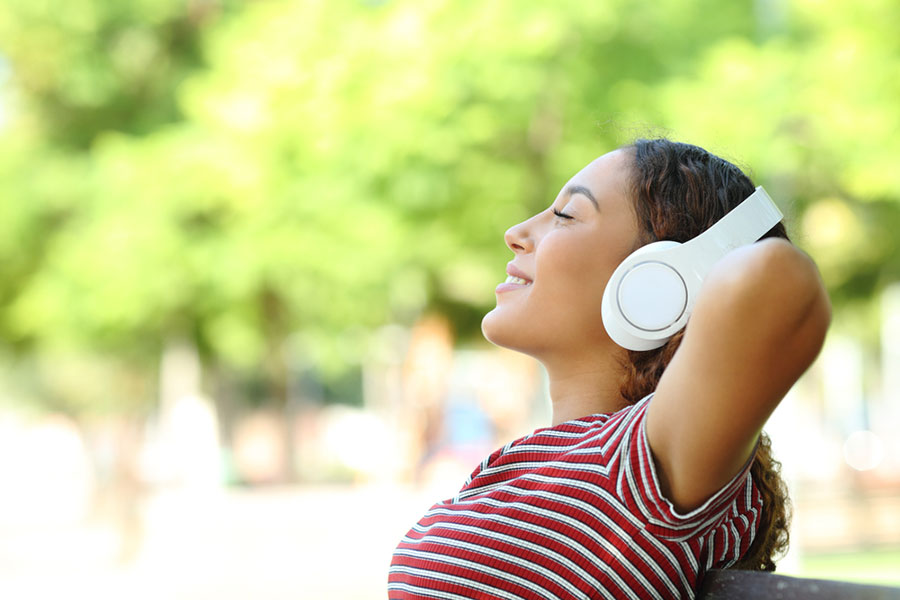
01 Jan Meditation is great for teenagers
Today I want to explore the concept of meditation. What vision do you see in your mind after reading this word? Do you see a monk sitting there for hours with cross legs and upturned palms in the lotus position? Or do you see someone practicing yoga on a beach in front of a colourful sunset?
This is often how the media illustrate meditation, but it can be carried out anywhere and there are many different forms.
“Meditation means dissolving the invisible walls that unawareness has built.”
What is meditation?
Meditation is so much more than sitting under a tree chanting. Have you tried it before?
One definition of meditation is ‘a practice where an individual uses a technique such as mindfulness or focusing their mind on a particular object, thought or activity to train attention and awareness and achieve a mentally clear and emotionally calm, stable state.’
That sounds wonderful doesn’t it? Some of the earliest written records of meditation such as Dhyana in Buddhism come from the Hindu traditions of Vedantism around 1500 years before Christ. Religiously speaking, meditation has been practiced for 1000s of years, but since the 19th century it’s become more widespread and is now commonly practiced in both private life and in business life – so you don’t have to have any religious beliefs to practice it.
Meditation is used to help reduce stress, anxiety, depression and pain and to increase peace, positive perception, self–concept and wellbeing. Scientific research suggests positive effects on health, psychological, neurological and cardio vascular.
The original Latin meaning of meditation is to ‘think deeply about something’, but the more modern approach to meditation is to focus your mind for a period of time or the act of giving your attention to only one thing while focusing on deep breathing or repeating a positive mantra.
“Meditation means the recognition or the discovery of one’s own true self.”
Why is meditation good for teenagers?
Well it’s not just good for teenagers, it’s great for everyone but people often think it’s something that only older people practice.
If you have tried meditating, did you get distracted by your inner voice chattering away and give up? Or did you persevere and find a routine that worked for you? It doesn’t matter if this is all new to you, if you’ve never tried it before or if you’ve tried it, but it didn’t work out. You’re in the right place to begin now and all you need to remember is that meditation has wonderful results.
Some people like the idea of meditating but don’t have the time or like the thought of any effort involved, but it doesn’t have to be for a long time and you can practice it pretty much anywhere.
There are many benefits to meditation.
- Lowers blood pressure
- Reduces stress
- Enables deep breathing to get oxygen to the brain to think calmly
- Reduces the build-up of toxins
- Gets rid of carbon dioxide
- Boosts the immune system
- Promotes a sense of wellbeing
- Promotes release of healthy neurotransmitters – healing for both your mind and body
There is evidence that people who meditate look younger because they are more relaxed. And they have fewer wrinkles! You won’t have to worry about that yet, but I’m all for that at my age!

What’s the best way to meditate?
There are several ways to meditate, so it’s a case of exploring a few and finding one that you’re comfortable with. As a teenager you will have a lot going on in your life including the pressures of education and finding a career you love, so any meditation time needs to suit your routine otherwise you’ll see it as a chore. Choose a place and a time where you have at least twenty minutes to practice meditating. Your room might be a good place as it’s a private space or maybe a quiet woodland area if it’s warm outside. I would suggest trying a few different practices over a few days to see what works best.
- No thought meditation
- This is exactly as it sounds – you relax and think of nothing. I find this challenging for any length of time because my inner voice can’t help but babble, but you can focus on one object in your room such as a candle or picture as this can keep your inner voice at bay.
- Mantra meditation
- Pick a meaningful phrase and repeat it over and over and in different ways, emphasising certain words. Read more about mantras and incantations
- Breathe meditation
- Again, this is exactly as it sounds where you concentrate and follow your breathing, taking deep breaths in and out.
- Sound meditation
- Relax and focus on chill out music designed specifically to aid meditation as you focus on a topic or challenge.
- Visualise meditation
- Picture the past or present or imagine the future and concentrate your efforts on letting something go or making something a reality.
- Gratitude meditation
- Deeply contemplate something you feel grateful for – feel and visualise it and be thankful.
- Guided meditation
- This is where a trained professional talks you through a meditation practice. This is my favourite way to meditate and I love to listen to Deepak Chokra, the late Dr Wayne Dyer or Dr Joe Dispenza.
When you meditate it changes your state of mind because your thoughts are focused on what you are doing. It’s great to start the day with meditation to set yourself up with a winning attitude and to look forward to the future. It’s also effective practice in the evening, especially if you’re busy because it will help to ground you, but be sure that you cannot be interrupted and switch off distractions.
“Quiet the mind and your soul will speak.”
Choose the life you want to lead
If you’re a seasoned meditator I’d love to know what works for you. What’s your favourite place? What meditation method do you use? Have you ever manifested something incredible as a result of your visualisations? Or have you ever had a spiritual experience of some description? Please do share your thoughts and practices with me on social media, the more ideas we all have the better.
If you want to start a private conversation or if you’re looking to work with someone to help you through a particularly troubling period in your life then please do email me in confidence.
And finally, if you dismiss meditation as mumbo jumbo I challenge you to give it another go and explore ways to make you feel better. I promise you it will feel clearer and your mood will feel lighter.


No Comments